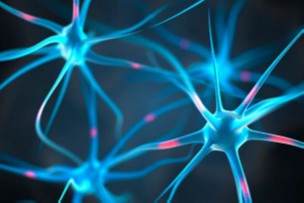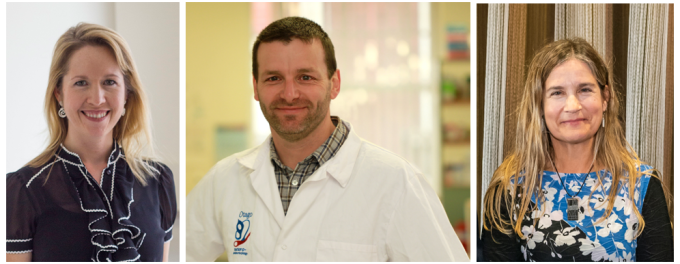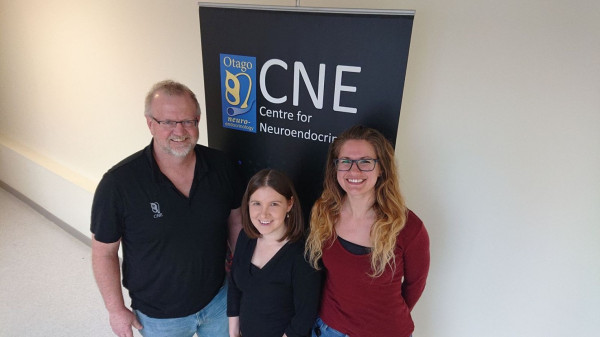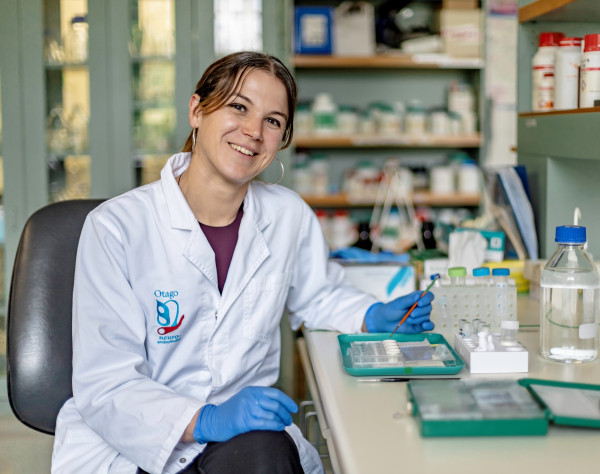Impact story: Women's reproductive health

Women’s reproductive health is bound up in fertility, but for researchers these days, it’s not only the ability for a body to become pregnant that is important, but how women’s lives and overall health are affected by medical issues such as polycystic ovary syndrome (PCOS), endometriosis, and menopause.
Research being conducted in Aotearoa New Zealand is offering some world-leading hope. The scientific understanding of reproductive ageing and the physiological differences between the sexes is gathering pace, and our researchers are at the forefront of making new discoveries to improve women’s health and fertility globally.
Marsden Fund grants, along with other research funds, such as the Health Research Council (HRC), are supporting our neuroendocrinologists to understand everything from the cellular physiology of PCOS and endometriosis to the psychology of pregnancy cravings and how they impact health later, to identifying which neurons cause hot flushes during menopause.
None of these outcomes we’ve talked about would be possible without the support of Marsden Fund and other funding bodies that provide the resources and fund the talent in the lab.
For the past 15 years, Professor Rebecca Campbell, an international expert in neuroendocrinology and director of the Centre of Neuroendocrinology (CNE) at Ōtākou Whakaihu Waka - University of Otago, along with the specialist women’s health Campbell Lab team have been researching how networks in the brain coordinate to control reproductive function.
“We are interested in the hormone release that comes from the brain and then also how the brain responds to hormones that are produced in the gonads, in both males and females,” explains Campbell.
Her research speciality is in understanding the role of this brain network in the development and treatment of PCOS, the leading cause of infertility in women.
Campbell came to Aotearoa New Zealand from the United States of America in 2002 on a Marsden Fund grant to work with Professor Allan Herbison FRSNZ, the first director of CNE, which was founded in 2003.

L to R: Professors Rebecca Campbell, Greg Anderson, and Christine Jasoni.
Since receiving her initial Marsden Fund grant in 2010, Campbell was awarded subsequent Marsden Fund grants in 2015, 2017 and 2023 and a large HRC grant with Professor Greg Anderson (University of Otago) and Professor Christine Jasoni CRSNZ (Te Whare Wānaka o Aoraki - Lincoln University). These and other collaborative grants from the Marsden Fund to Anderson, Associate Professor Mike Garratt (University of Otago) and others have supported the research to branch out from decoding and modelling the role of neurons in PCOS to understanding how the reproductive process influence health and subsequent ageing.
The success of this research programme alongside the shift to focus on better understanding women’s reproductive health has led to a cascading effect in funding. As the reputation of the Campbell Lab and CNE grew, so too did the funding from local and international sources.
These funding injections also fostered the growth of women’s reproductive health research more broadly across Aotearoa New Zealand. Alongside PCOS, today’s researchers are also directing the world’s understanding of endometriosis and pregnancy health, and how these interplay with women’s fertility.
Simultaneously, there has been an increased global focus on women’s health. In 2019, the Buck Centre for Healthy Ageing Women opened in California. It is one of the first dedicated centres for women’s health in the world.

L to R: Professor Dave Grattan, Dr Rosemary Brown, and Dr Kristina Smiley.
Just a year later, in 2020, the Maurice Wilkins Centre, a Centre of Research Excellence (CoRE), shifted focus in its metabolic health theme to include a focus on women’s health and PCOS, supporting the next generation of women’s health researchers. This theme is led by Professor Dave Grattan FRSNZ and Professor Peter Shepherd FRSNZ from Waipapa Taumata Rau - University of Auckland, with Campbell as a Principal Investigator.
In 2021, two researchers based at the CNE and associated with the Maurice Wilkins Centre received Marsden Grants to understand more about pregnancy health. Dr Rosie Brown researched how brain circuits control maternal behaviour, while Dr Sharon Ladyman (both of University of Otago) investigated how the manipulation of the pregnancy hormone prolactin may regulate body temperature, leading to healthier pregnancies.
An important piece of research that laid the foundation for the explosion of interest in reproductive research within Aotearoa New Zealand, is the work Campbell and others have done into neuronal activity unique to PCOS and how it shapes fertility outcomes.
“We’ve learned much more about how androgens influence different areas of the female brain, including the hypothalamus, which controls reproduction and metabolism, and the limbic system, an area associated with mood disorders,” says Campbell.
This work into androgen actions in the female brain has seen the Campbell Lab approached by drug developers, with whom they have recently signed a commercial contract.
In the early 2020s, Campbell met Associate Professor Jane Girling, a reproductive biologist new to the University of Otago and an endometriosis research specialist. They joined forces to study the intersection between endometriosis and PCOS.
Research inspired by Girling’s endometriosis work also continues in other ‘women’s health’ spaces, including Te Whare Wānanga o Waitaha - University of Canterbury researcher Dr Rachael Wood’s research on understanding the cellular function of endometriosis.
A biochemical engineer, Wood’s earlier research found that endometriosis has similar invasive properties to hormone-driven cancers. A Marsden Fund Fast-Start grant in 2023 is now helping her and her team create models to understand how endometriosis tissue behaves at a cellular level.
It’s not just women’s reproductive health that is under examination, however. In 2023, Garratt, Campbell, and Anderson received an international grant from the Center for Healthy Aging in Women in the USA to understand how age at puberty and reproductive scheduling can impact reproductive ageing.
Other researchers are involved in work to model and understand how hormones and the brain interact and what interventions may improve pregnancy health.
In 2023, University of Auckland researcher Associate Professor Alys Clark received a third Marsden Fund grant to continue testing the world’s first virtual pregnant uterus, a model she first started in 2014.
In the same year, Dr Teodora Georgescu (University of Otago) received a Marsden Fund Fast-Start grant to understand how fever might be suppressed during late pregnancy to protect a growing foetus. Meanwhile, her colleague Associate Professor Mei Peng was funded to work alongside Garratt on a pioneering longitudinal study into behavioural changes in pregnant women.

Dr Theodora Georgescu
In 2024, Dr Jenny Clarkson (University of Otago) received a Marsden Grant to understand the role of neurons in hot flushes during menopause with the aim of reducing sleep disturbance. Prior to this Jenny was the co-principal investigator, alongside Dave Grattan, in an HRC-funded project that looked at menopause. This research forms the basis of the Marsden programme Clarkson and her team are currently working on.
The reality is that this kind of medical research is expensive, especially for those researchers who are working with live mammalian cells.
“None of these outcomes we’ve talked about would be possible without the support of Marsden Fund and other funding bodies that provide the resources and fund the talent in the lab,” says Campbell.
Just last year CNE lost its university funding and is currently being kept afloat by its members, including funding from HRC or the Marsden Fund, or joint funding from outside New Zealand.
Girling says the fact that Aotearoa New Zealand is a small country means the type of interdisciplinary research that she, Campbell, Garratt and Anderson have been carrying out is possible because of their ability to form collaborative networks.
“You can focus on the uterus, but you can’t understand the uterus without knowing what the ovaries are doing, without knowing what the brain’s doing. You need to know what the vascular system’s doing, what the immune system’s doing, about other cellular processes” explains Girling.
“All of these things are fundamentally important to the functioning of any individual organ because as humans we’re a whole with interacting bits.”
- Ceridwyn Robert, 2025.
